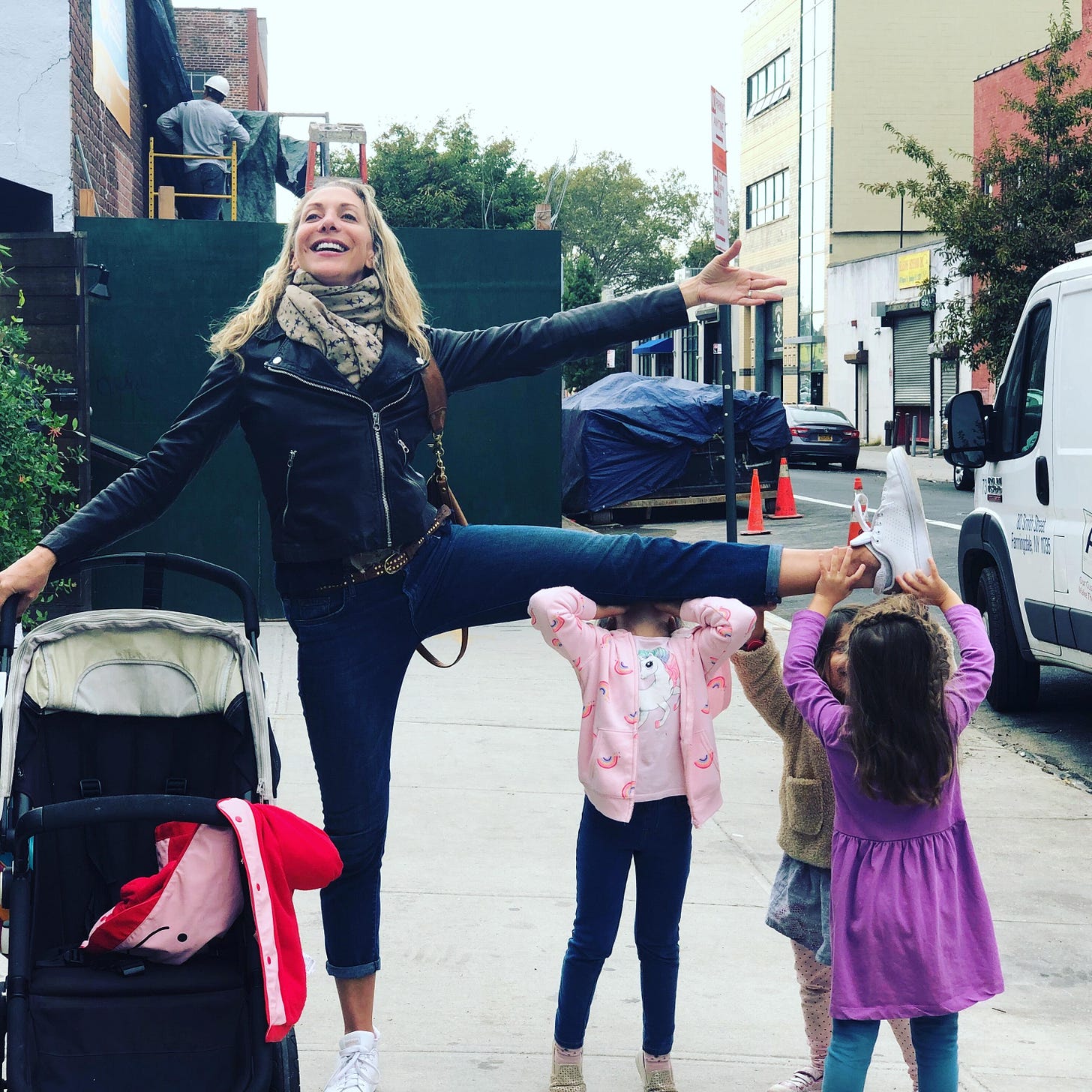Joanna Hershon on Writing, Motherhood, and Bleeding in Tulum
An fantastic writer and a delightful friend
When I met Joanna Hershon, we were both in our twenties, introduced through a mutual friend. We were aspiring actors finding our way, exploring the boundaries of love, seeking and ultimately committing to our voices and paths. Joanna was the first of our friends to go to graduate school for writing, and I always imagined Ramona as part of her Columbia cohort. The characters in Joanna’s books stay with me. I remember them as if they’re actual women I’ve spent time and maybe swapped secrets with (In particular, I’m haunted by Sarah, the protagonist of St Ivo…) and I’m thrilled to introduce them to you.
Here’s the conversation Joanna and I had about her writing life and her new short story, “Not Yet,” recently published in Grand and available as a story radio podcast.
BB: Can you talk about the transition from acting to writing? How did that happen?
JH: I was always equally passionate and compulsive about writing. But acting is public-facing, it requires other people, whereas writing is a solitary pursuit. I was always doing both, but, basically, the writing won out.
What actually happened was that I was living in NYC, auditioning and trying to gain some foothold in a life as an actor, but ended up getting more green lights as a writer. I was awarded an Edward Albee writing fellowship right out of college, and, after being so frustrated with the scripts I was auditioning with, I wrote a one-act and then a full-length play, which were produced by a small theater company in New York.
After a couple of years of auditioning and trying and failing to get an agent, I applied to a handful of acting graduate programs and at the last minute I put in an application to Columbia’s MFA fiction program. When I was rejected from the acting grad schools and accepted to Columbia, I basically freaked out. I couldn’t imagine stepping away from acting, and then decided to get my MFA and trying to write a novel in the process. At the time, I thought I’d continue auditioning and pursuing an acting life, but then I genuinely became obsessed with writing my novel, and eventually I let the acting go.
Of course, as soon as I started the MFA in fiction, I was offered an acting job at a regional theater where I’d always wanted to work. But I turned it down and never regretted it.
BB: And once you published, what was that like?
JH: Disappointing. Anticlimactic. (Insert bitter laughter). I did actually write that novel, and it sold right away and I got a two-book deal and it was very exciting and I was young and didn’t know anything, but I did know enough to be very very grateful.
But, honestly, I have published five novels now, and each time I always think that, even though I truly love doing readings and connecting with readers—and it’s the one time that I get to tap into the part of me that did really love the public-facing aspect of being an actor—my experience each time I’ve published a novel is that the actual writing process is the very best part. The publishing aspect is a wild ride of highs and lows, and there’s a lot of waiting, a lot of managing expectations.
BB: How do you balance writing and motherhood?
JH: Writing is all-consuming, but motherhood is even more so. Balancing mothering and writing has had its own trajectory along with my children’s ages. I have twin boys who are nineteen and a daughter who's ten, so I've been a parent for a long time through many stages. The balancing act is all about having time to write. This coveted time comes down to practical matters like money and space, and it also comes down to psychological aspects of separation and focus. In some ways it’s a job like any other job, and in other ways, writing novels is a self-motivated game of outpacing one's own enthusiasm, so that balance can feel precarious if I don’t stay connected to my writing.
BB: Where did “Not Yet” come from and how did it take shape?
JH: This story, “Not Yet,” emerged from my own experience of being in Tulum with a group of friends. I was indeed bleeding everywhere I went, and there was something surreal about the amount of blood in context with the surroundings, which were bohemian-holiday-mystical and of course also rooted in an ancient Mayan culture. After this trip, a sentence would play through my head for several years: I was bleeding all over Tulum. This sentence never made it into the story, and tone ended up skewing darker than I’d originally imagined, but the origin—both primal and comical—kept needling me to engage.
BB: Has your work changed in any way at midlife?
JH: My writing has followed my interests and anxieties, and those have essentially remained the same. I’m fascinated by people’s motivations, by emotional and physical intimacy, and by what I see as the suspenseful rhythms of everyday life. And, also, in some ways these interests and anxieties have grown up with me. My most recent novel, St. Ivo, and this story both feature parents of young adult children. Not all of my characters are at the same stage of life as I am, but most of my characters do have children, and despite having other issues to contend with, the challenges and risks and joys of being a parent do loom large. I wrote about parents and children before I had my own children, but my parental perspective has certainly deepened.
BB: What inspires you right now? What are you looking forward to?
JH: I’m inspired by my husband’s paintings and music, by the creative endeavors of my three children, my mega-talented friends (like you, Brooke Berman!), and by the natural world that continues to astound despite how horribly we humans have treated the Earth. I’m inspired by dance classes whenever I manage to take one, the energy I take from circling the loop in Prospect Park, and the enduring power of my friendships that grow deeper over decades or ones that emerge from recent sparks of connection. I’m also inspired by my MFA students at Columbia University, as they are people who care deeply about original language and literature.
Joanna Hershon is the author of five novels: St. Ivo, Swimming, The Outside of August, The German Bride and A Dual Inheritance. Her writing has appeared in The Yale Review, Granta, The New York Times, One Story, The Virginia Quarterly Review, the literary anthologies Brooklyn Was Mine and Freud’s Blind Spot, and was shortlisted for the 2007 O. Henry Prize Stories. She teaches in the Creative Writing department at Columbia University and lives in Brooklyn with her husband, painter Derek Buckner, and their children.






